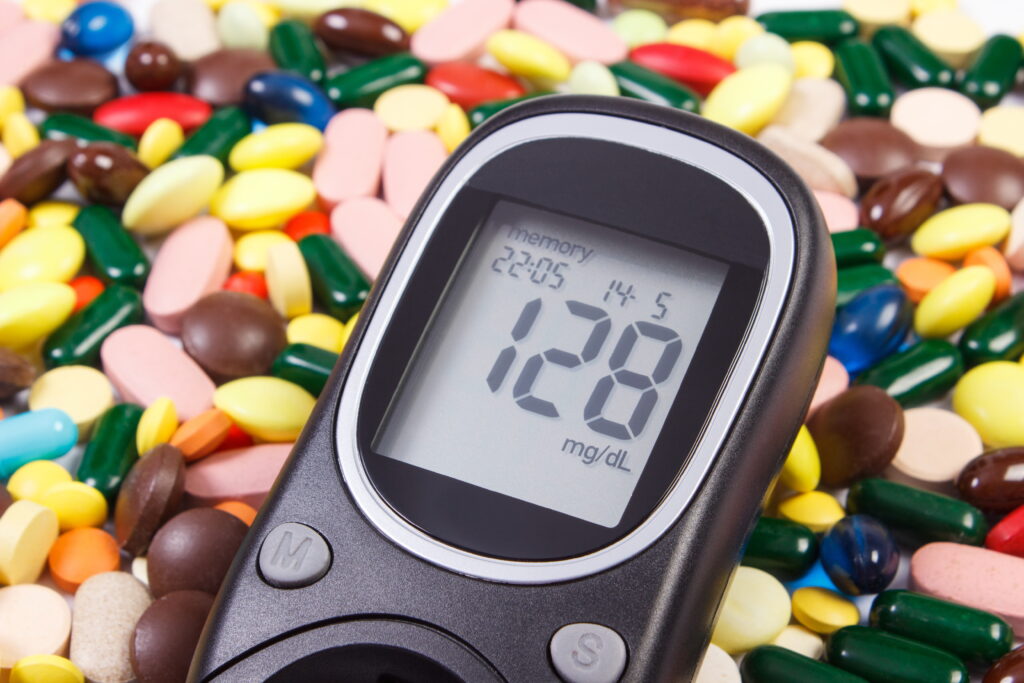High Blood Sugars? Do This Instead:

Do Natural Remedies Work?
– In late 2022, the American Diabetes Association (ADA) made a shocking announcement…
– The ADA’s committee of experts removed Metformin from its “first-line” treatments.
– In fact, the ADA now ranks Metformin as inferior to other options for blood sugar control.
– Even so, Big Pharma will NEVER confess that Metformin has been “downgraded”…
– And they’ll certainly never reveal this one special food that lowers your A1C while helping you lose weight at the same time.
– Why? Because the US National Library of Medicine says this food is better than Metformin for folks with blood sugar issues.
– Skeptical? Click the link below to see the latest research
=> This One Special Food Lowers A1C Starting Immediately
42,212 other American men and women are using this trick to start a healthier chapter in their lives.
High blood sugar, or hyperglycemia, can be harmful in both the short and long term. Here’s how:
1. Short-Term Risks:
- Increased Thirst and Urination: When blood sugar levels rise too high, the kidneys try to remove the excess sugar by producing more urine. This can lead to dehydration, causing symptoms like increased thirst, frequent urination, and fatigue.
- Blurred Vision: High blood sugar can cause fluid to shift in and out of the eye’s lenses, leading to temporary blurred vision.
- Fatigue: When the body’s cells don’t receive enough glucose for energy (because insulin isn’t functioning properly or there isn’t enough of it), it can lead to fatigue.
- Nausea and Vomiting: Extremely high blood sugar levels can lead to a condition called diabetic ketoacidosis (DKA) in type 1 diabetes, where the body starts breaking down fat for energy, producing acidic byproducts called ketones, leading to nausea, vomiting, and, in severe cases, coma.
2. Long-Term Harm:
If blood sugar levels remain high over time, they can damage various organs and systems in the body:
- Nerve Damage (Neuropathy): Chronically high blood sugar can damage nerves, leading to pain, tingling, numbness, or weakness, especially in the hands and feet. In severe cases, it can lead to loss of sensation.
- Eye Damage (Retinopathy): High blood sugar can damage the blood vessels in the retina, leading to diabetic retinopathy, which can result in vision loss or blindness.
- Kidney Damage (Nephropathy): Over time, high blood sugar can damage the kidneys’ filtering system, potentially leading to kidney failure.
- Heart Disease: Chronic high blood sugar contributes to the development of atherosclerosis (narrowing and hardening of the arteries), increasing the risk of heart attack, stroke, and other cardiovascular issues.
- Poor Circulation: High blood sugar can damage blood vessels, leading to poor circulation, which can slow healing and increase the risk of infections, especially in the feet and legs. Severe cases can lead to amputations.
- Increased Risk of Infections: Elevated blood sugar can impair the immune system’s ability to fight infections, making people with poorly controlled diabetes more susceptible to bacterial and fungal infections.
3. Increased Inflammation:
Chronic hyperglycemia contributes to systemic inflammation, which accelerates the development of many of the complications associated with diabetes, including cardiovascular disease and organ damage.
4. Mental Health Impact:
High blood sugar has been associated with mood swings, irritability, and even depression. The stress on the body from constantly managing high blood sugar can contribute to mental health struggles as well.
5. Other Complications:
- Gum Disease and Dental Problems: High blood sugar can contribute to infections in the mouth, leading to gum disease, tooth decay, and other oral health issues.
- Skin Problems: High blood sugar can lead to dry skin, fungal infections, and increased risk of sores and cuts, which may heal more slowly.
Managing Blood Sugar:
Maintaining blood sugar levels within a healthy range is essential to reducing the risk of both immediate and long-term complications. This typically involves a combination of healthy eating, regular exercise, medication (such as insulin or oral medications), and regular monitoring of blood sugar levels.
If you’re concerned about high blood sugar or diabetes, it’s important to consult with a healthcare provider to develop a personalized plan for management and prevention.

